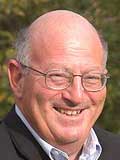Dave Thomas, Bedarra Research Labs

Dave Thomas has a wide spectrum of experience in the software industry as an engineer, professor, consultant, architect, executive and investor. Dave is founder and CEO of Bedarra Corporation; which provides virtual CTO and CEO, business mentoring and seed investment to emerging companies. Recently formed Bedarra Research Labs undertakes speculative research on applications of emerging software technologies.
Dave has many years of experience in structured documents including the design of laser printer controllers, early commercial applications of Tex. He has advised on the IBM B2B strategy, and is on the MS Customer Advisory Council and with OLL contributed to the SCORM elearning standard, and authoring tools. He is Chairman of Xia Systems, Online-Learning.com (OLL), and a director of Stilo/Omnimark, Bitflash, Amikanow and Synop and several other software companies.
Dave is best known as the founder and past CEO and president of Object Technology International Inc. (formerly OTI, now IBM OTI Labs) and led the commercial introduction of object and component technology. The company is often cited as the ideal model of a software technology company.
Dave was the principal visionary and architect for IBM VisualAge Smalltalk and Java tools and virtual machines including the initial work on popular multi-language Eclipse.org IDE. OTI pioneered the use of virtual machines in embedded systems with Tektronix shipping the first commercial products in 1988. He was instrumental in the establishment of IBM's Pervasive computing efforts and in particular the Java tooling.
Dave is an adjunct research professor at Carleton University, and the University Of Queensland and is widely published in the software engineering literature. He is a popular humorous albeit opinionated keynote speaker. Dave remains active in various roles within the technical community including ECOOP, AOSD, Evolve, and Agile Development Conference, Agile/XP Universe and OOPSLA Onward. He is a founding director of the Agile Alliance and most recently a founder of Open Augment Consortium. Dave writes expert columns in Otland Online in Germany, and the Journal Of Object Technology in Switzerland where he also serves on the editorial board.













